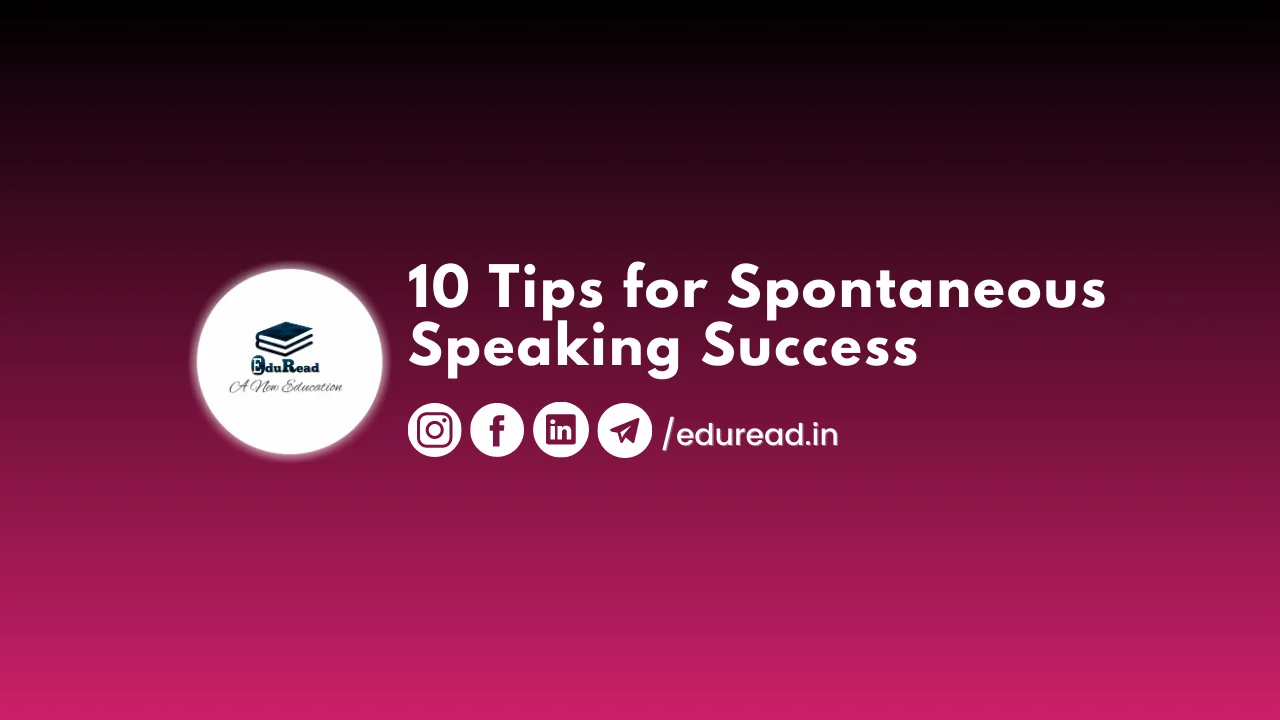Speaking without preparation can be a daunting task, especially if you’re not used to thinking on your feet. However, it’s a skill that’s highly valued in many situations, including job interviews, public speaking events, and spontaneous conversations. If you want to improve your ability to speak without preparation, here are 10 strategies you can use:
1. Embrace Your Nerves
Feeling nervous before speaking without preparation is completely normal, but it’s important to embrace those nerves and use them to your advantage. Nervousness can help keep you alert and focused, which can actually improve your speaking abilities. However, it’s important to manage your nerves so that they don’t become overwhelming.
2. Take a Deep Breath
If you’re feeling overwhelmed or anxious before speaking, taking a deep breath can help calm your nerves and give you the mental clarity you need to speak effectively. This can also help you slow down your speech and speak at a comfortable pace.
3. Know Your Topic
While you may not have time to prepare extensively, it’s still important to have a basic understanding of the topic you’ll be speaking about. Take a few moments to gather your thoughts and mentally organize your ideas. This can help you feel more confident and prepared to speak about the topic.
4. Practice Active Listening
When speaking without preparation, it’s important to be an active listener. Make sure you’re fully engaged in the conversation and paying attention to what others are saying, so you can respond thoughtfully and effectively. This can help you add value to the conversation and ensure that your contributions are relevant and on-topic.
5. Use Simple Language
When speaking without preparation, it’s important to use simple, clear language. Avoid using jargon or complicated vocabulary, as this can make it difficult for your audience to understand your message. Using simple language can also help you communicate more effectively and ensure that your message is clear.
6. Focus on Your Body Language
Body language can be just as important as the words you speak when speaking without preparation. Make sure you’re maintaining eye contact, using appropriate gestures, and projecting confidence through your posture and stance. This can help you appear more confident and engaging when speaking.
7. Be Confident in Your Knowledge
Even if you don’t have time to prepare extensively, remember that you still have valuable knowledge and insights to share. Be confident in your abilities and trust that you’ll be able to effectively communicate your message. This can help you appear more confident and engaging when speaking.
8. Be Open to Feedback
Speaking without preparation can be a learning experience. Be open to feedback from others and use it to improve your speaking skills in the future. Feedback can also help you better understand how others perceive you and your communication style, which can help you make improvements over time.
9. Emphasize the Importance of Preparation
While speaking without preparation can be a valuable skill, it’s still important to emphasize the value of preparation in certain situations. Encourage others to take the time to prepare when appropriate, and use your own experiences to illustrate the benefits of preparation. This can help others understand the importance of preparation and help them develop their own preparation skills.
10. Practice, Practice, Practice
Like any skill, speaking without preparation takes practice. Look for opportunities to practice in low-stakes situations, such as casual conversations or group discussions. With time and practice, you’ll become more comfortable and confident speaking without preparation. This can help you develop your communication skills and become a more effective communicator overall.
Conclusion:
In conclusion, speaking without preparation can be challenging, but it’s a skill that can be developed with practice and the right mindset. By following these 10 strategies, you can improve your ability to speak without preparation and communicate effectively in a variety of situations. Remember, preparation is important, but the ability to think on your feet is a valuable skill that can set you apart from others.
Follow Us for more such content to improve your speaking skills:
Check out this blog to overcome the English Speaking Barrier: https://eduread.in/overcoming-the-i-understand-but-cant-speak-barrier-in-english-speak-new-york/
And visit us for more
